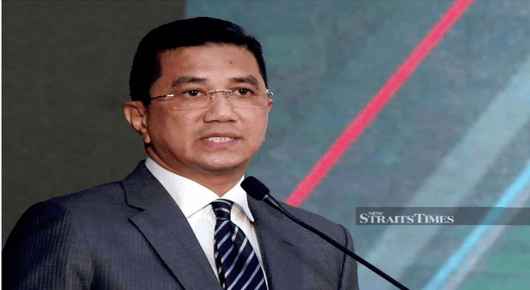
NEW YORK: The agriculture sector is going to be important in launching the Malaysian economy to the next level, Economic Affairs Minister Datuk Seri Azmin Ali said.
With the number of poverty cases higher in states whose economies are driven by agricultural activities, the government needs to correct the imbalance in wealth distribution and reduce disparity between income classes, ethnic groups, territories and supply chains, he added.
“Therefore, Malaysia has taken a comprehensive view to measure the poverty line with the introduction of the Multidimensional Poverty Index, which takes into account demographic factors, education, health and standard of living to provide a clearer picture of the socioeconomic needs of society,” Azmin said at a United Nations side-event on poverty eradication, yesterday.
He said this is among the core objectives of the Shared Prosperity Vision that will be undertaken by Malaysia in its long-term development plan for the next 10 years.
“As a start, we need to deepen our research & development into mixed farming so that the agriculture sector does not entirely rely on rubber and palm oil produce, but instead will devote a portion of lands into production of cash crops such as vegetables, fruits and flowers that are very much in demand in the global market,” Azmin said.
The side-event on “Environmental Stewardship in Addressing Poverty to Achieve Sustainable Development for All”, was hosted by Malaysia, with support from Turkey and Pakistan.
Azmin said Malaysia’s food import bill in 2018 stood at more than RM50 billion and is growing year by year. Many of the crops imported now can be replaced with local production.
“To achieve this requires economies of scale in production. Hence, our new approach will amalgamate smaller farms to be managed professionally, efficiently and thus generating higher income for farmers,” he added.
Azmin said the agriculture sector could be enhanced through smart farming, using new technology like artificial intelligence, automation, Big Data analytics, drones and robotics.
This necessitates developing high-skill human capital such as farm managers that are professionally-certified and able to maximise production, as well as manage the farms professionally and efficiently.
“This also creates new high-income jobs that are crucial in uplifting the socioeconomic conditions of the agriculture workforce as one of the measures to increase their purchasing power,” he added.
Azmin said that as Malaysia remains steadfast in its commitment to achieving sustainable development for all in addressing poverty, a similar approach will be taken in all areas of the economy.
Credit to: nst











